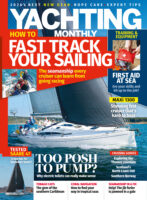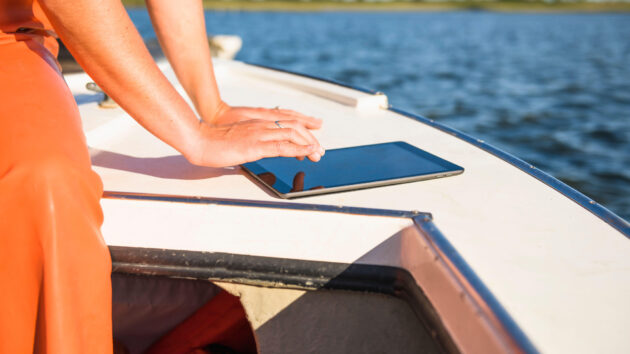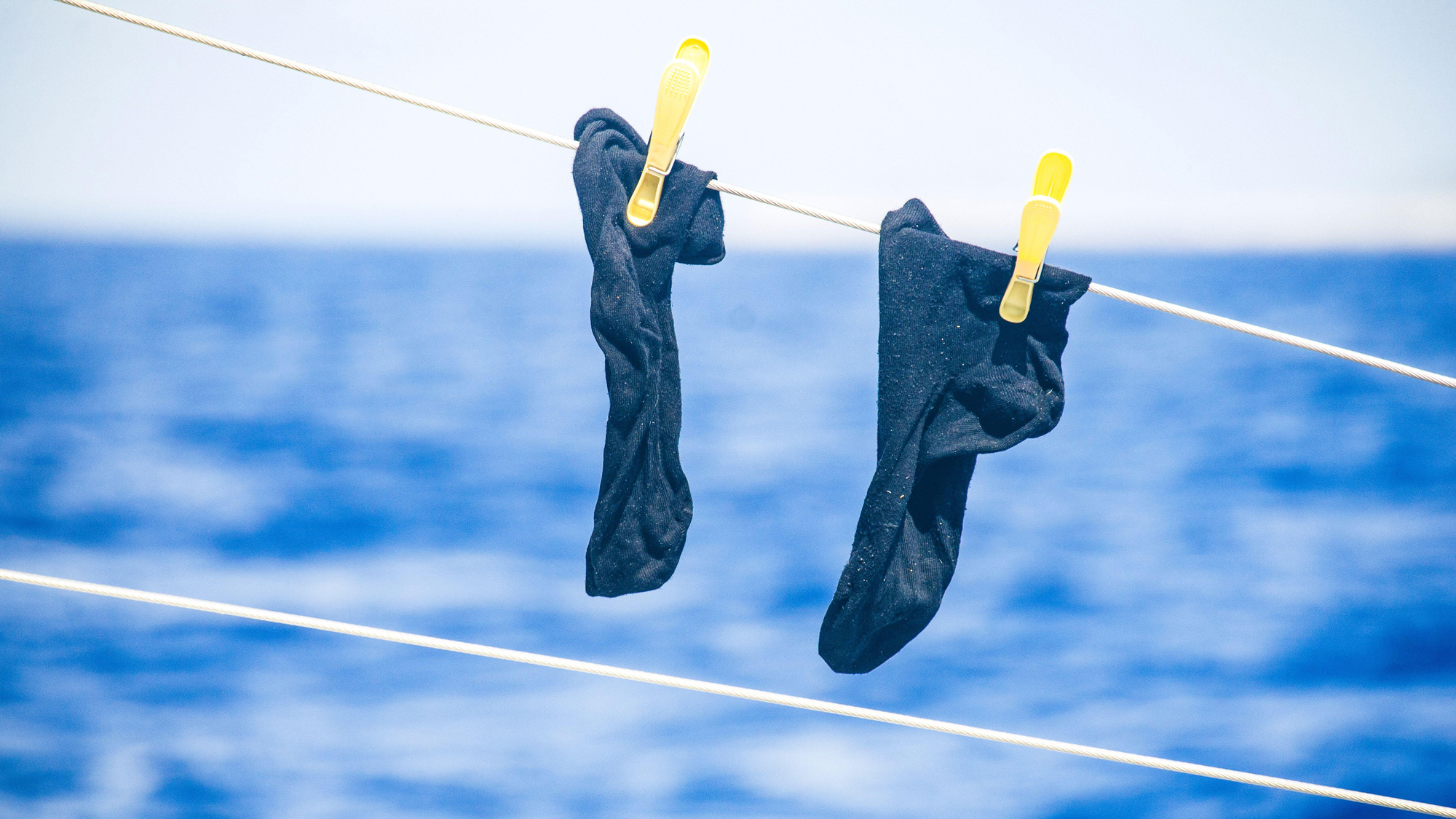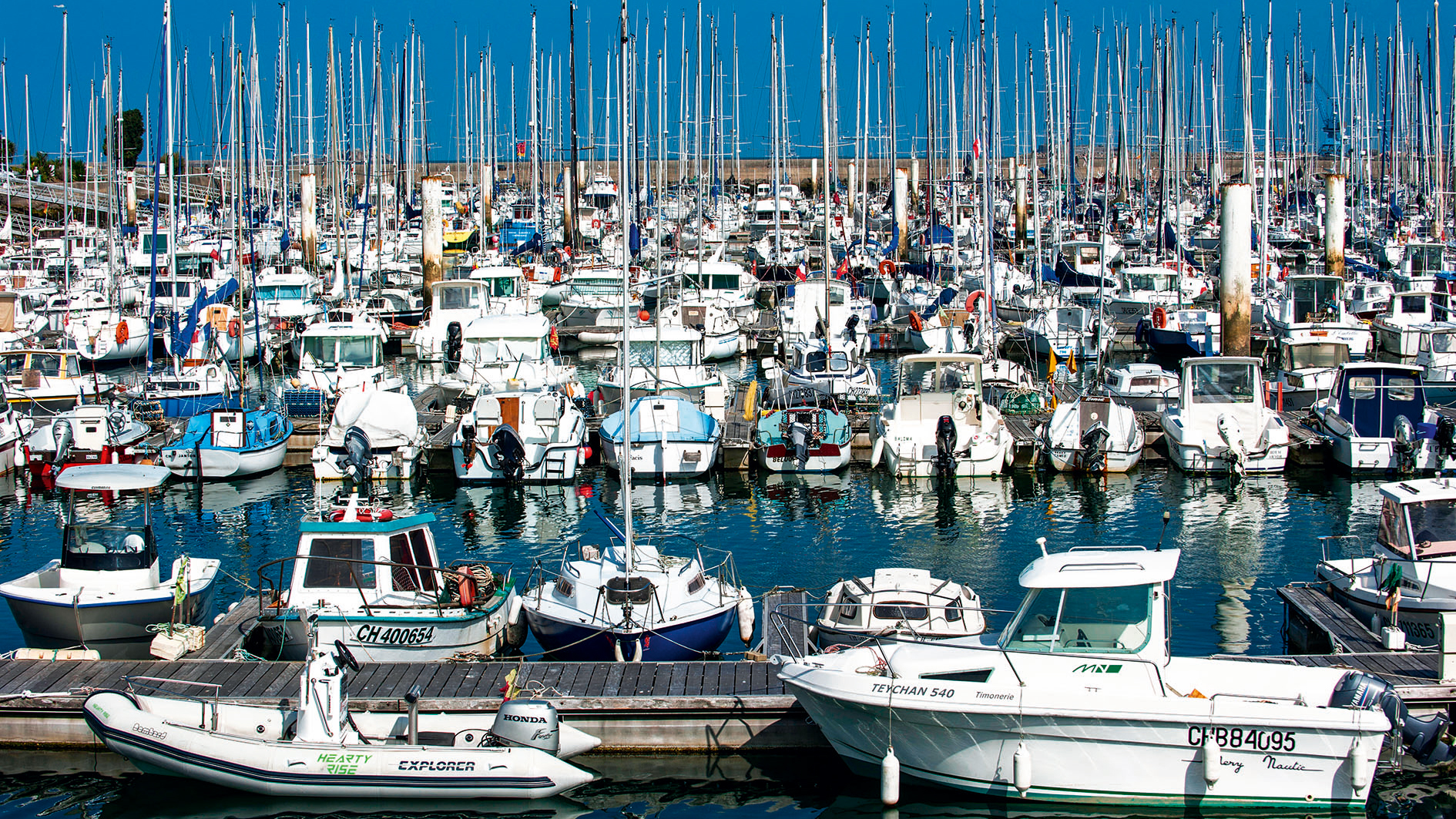Libby Purves discusses how a new factor in this modern age of cruising is the relationship between the rolling news cycle and crews at sea.
A new factor in this modern age of cruising is the relationship between the rolling news cycle and crews at sea. Ashore, news is now a relentless, inescapable 24/7 battering of the brain and sympathies: sometimes the torrent of wars, politics, disasters and scandals updated on smartphones and radio news gets overwhelming. So at sea the awful temptation is to glance down at the chart table phone every half-hour in order to be up with the very, very latest.
It can sometimes make you nostalgic for the times when, after the morning newspaper and perhaps a bulletin, the only fresh shocks came from an old bloke in a muffler on a city street-corner shouting ‘Eeeevning Stannard!’ or ‘Echo, latest!’. But we go sailing with an expectation of getting away from it all and re-setting the nerves. Once, you really could.
My finest hour was in autumn 1974, when I got back from a last trip of the year and my housemate, packing for America, mentioned President Ford. ‘No, not in America’ I said. ‘You mean Australia or somewhere. America is Nixon. You know, the Watergate one’. She gently put me right, and pointed out that I was clearly not yet fully prepared for what I had come to London for: a BBC news trainee interview the next morning…
But such blissful ignorances are rare now. And when you do go cruising, the odds are that the radio will be on for a lot more than the Shipping Forecast, and smartphones come alight with notifications every time there’s a signal. The news still rides you like a demented jockey.
But more recently, when you do follow a running news story from within your private little bubble offshore it somehow sinks in with more reality. I suppose one is a bit more sensitised at sea than in a house, due to the constant awareness of real wind and real water and potential medium-grade danger from anything from boom bashes to sinking. On a yacht at sea suddenly everything is real.
Article continues below…
‘What is the best thing to do when you enter a new marina? Laundry… yes really!’ – Libby Purves
Ever wonder what a person learns from 57 summers yacht cruising, serving as crew aboard boats from 18 to 50ft…
‘Anything can be the beginning of another boating friendship’ – Libby Purves
Thirty years ago this spring I had my first novel published, Casting Off – apprentice-work, a bit chick-lit at times,…
Hilaire Belloc said that the best thing about sailing was ‘control, direction, effort, fate – thus sailing the sea we know ourselves, and know our state’.
This summer we reflected on bits of breaking news we have heard afloat. There was Margaret Thatcher’s order to the task-force to sail for the Falklands in spring 1982: we were afloat in the Thames Estuary, agog, and somehow aware that under us were historic waters which had seen sea-battles.
Later came another political jolt: heard on a poorish medium-wave signal halfway across the Channel, John Major confronting his cabinet with ‘Back me or sack me’. That kept us talking for miles. As, of course, have developments in the grim Ukraine and Gaza conflicts.
Naturally some stories feel immensely different at sea because they relate closely to your surroundings. Like orca attacks off the western coasts of Europe, or the shocking sinking of the Bayesian, then, a summer later, the first reports of her salvage.
It’s even more intense if stories keep developing, night after night and every morning on the news. Offshore it was hard not to feel edgy as we followed the fortunes of the submersible Titan on its dive to the Titanic. It never seemed there could be much hope, but it was impossible not to nourish some, as each day’s sun went down over the western waters.
Endless technical talk increased the tension. Then this summer, two years later, we heard of the US Coastguard report on its poor preparation and that brought a new shiver, and quiet reflection about the responsibility of all who design, prepare and build boats of all sizes.
But of all the tense, running stories I have bonded with at sea, the saddest was the search for Dr Michael Mosley: the nicest, most benevolent of men. The four-day search in fading hope was one to get the hardest-hearted praying for him.
In the cooler Atlantic wind we imagined the cruel Greek heat and stumbling stony paths. In the intensified reality of sailing the sadness hit hard. It’s probably, on the whole, a good thing: sailing keeps you human.
Enjoyed reading this?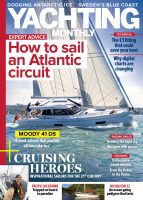
A subscription to Yachting Monthly magazine costs around 40% less than the cover price, so you can save money compared to buying single issues.
Print and digital editions are available through Magazines Direct – where you can also find the latest deals.
YM is packed with information to help you get the most from your time on the water.
-
-
- Take your seamanship to the next level with tips, advice and skills from our experts
- Impartial in-depth reviews of the latest yachts and equipment
- Cruising guides to help you reach those dream destinations
-
Follow us on Facebook, Twitter and Instagram.
Note: We may earn a commission when you buy through links on our site, at no extra cost to you. This doesn’t affect our editorial independence.

